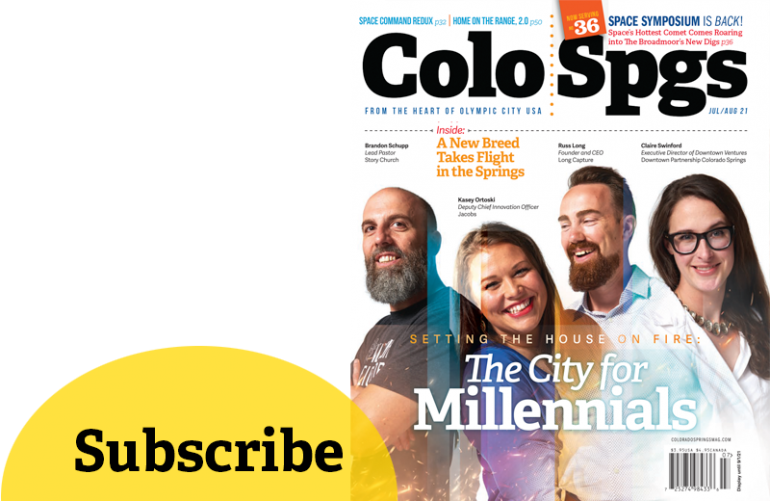FIGHTING CHANCE
Cinema is full of inspiring tales about overcoming challenges. One of the most moving is the story of Rocky Balboa. By all accounts, Rocky should have given up his boxing career. However, with some lucky breaks, his mental tenacity, and help from his close friends, Rocky overcame the odds and achieved something nobody thought possible. Rocky is a beloved character whose story provides insight into struggles and challenges familiar to men from every walk of life.
Feminine stereotypes and beauty standards are difficult enough to deal with. But there’s something extra about the masculine ideals. Something inherently moral implied. The pressure to be physically and emotionally strong blends seamlessly into the pressure to be good. You must be strong. You must be tough. You must not show weakness. Be a good man. Protect. Provide. Hide your emotions. Hold up the world.

We cheer on the tough guys who fight zombies, terrorists, and dog murderers. But the man on the couch next to you might be facing internal battles that feel even worse.
Adam Vigil, a Professional MMA fighter based in Colorado Springs, has lived a life worthy of film—a hero’s journey that began with strength, dove into darkness, passed through weakness, and returned to strength with a new understanding of its true meaning. Now, like a massive, 6’1” version of Mr. Miyagi, he patiently instructs a community of people on the same path he’s already traveled.
The setting is the Old School Boxing Gym, a small boxing gym on the east side of Platte Avenue. The cast of characters is a small group of men and women battling addictions. They love and look up to Adam as a coach and an older brother who knows their struggles.

When I walked into the gym, I immediately felt what can only be described as “a good vibe.” This was a safe place. Both men and women deal with addictions, identity questions, anxiety, and depression. And suicide rates are shockingly high in our community. According to the CDC’s 2020 census, Colorado is seventh in the nation when it comes to suicide rates, and El Paso County leads the state. Sadly, the rate of suicide among Colorado’s men is over three times higher than among women. Many have speculated that it has something to do with talking. But I wondered if maybe it has something more to do with community.

As Ernest ducked around the ropes taking photos of Adam and his sparring partner, I met Zion, a young man with red hair and a fresh, kind face. I wondered about his connection to the gym.
“So, tell me your story,” I began. “How did you get involved here?”
He took a deep breath. “Through Adam. He and my Dad were in prison together. My Dad had nothing but good things to say about him, and they helped each other out a lot while they were in there. When Adam got out, my Dad told me to hit him up; he said he’s a good dude and I could learn a lot from him. So, I hit Adam up randomly; we’d never spoken before. He was receptive, just the nicest guy right off the bat. He’s big, and he’s muscular, and he’s scary looking, but he’s the nicest dude I’ve ever met in my life. We talk about my problems, my life, you know. He always has advice for me. Like, who am I? What do I want to do? He’s had a lot of experience, all kinds of places and kinds of people, so he’s someone who can have good insight for you and point you in the right direction.”
I also met Israel. He was a little older, soft-spoken, and reserved, but he was just as willing to tell me what the gym had meant to him.
“This community means a lot to me, getting out and getting active, staying fit. Especially in my sobriety early in my sobriety, it helped me out a lot. Especially if you’re early in recovery, I highly recommend it. It’s a great place, a good community of sober people. I’d recommend anybody early in recovery to come check it out.”
Adam’s sparring partner jumped down from the ring—a tall, wiry young man with intense eyes and a gentle demeanor. I asked him for his name and the story of his involvement.
“My name is Giovanni,” he said. “I found this gym through Adam. He’s been a big inspiration in my life. Coming into my life not too long ago, he’s taken me into the sober life. He’s like a father to me, a brother, or anybody you can think of who is somebody close to you. He’s taken me under his wing. I’m a fighter also, so I come to him, and he motivates me to be the best person I could be right now.”
After meeting Giovanni, I connected with Dan Hugel. Dan was easily the biggest guy in the room, with a crew cut, a wide grin, and infectious positive energy.
“How did you get involved with Adam?” I asked.
“I met Adam through his Bible study at our church, The Sanctuary. Ever since we met, we’ve had so much in common, and we just started hanging out and working together to help people. I love that dude’s heart. That dude has so much heart; it’s amazing. He lives to serve people.”
“How do you see Adam helping people who struggle with addiction, anxiety, and depression?” I asked.
Dan gave me a huge grin. “Oh, that’s part of my story! Honestly, this community helps people with addiction. You get in here, and you do hard things together, so you don’t have to do hard things alone. And under the banner of recovery, we come in here, and we do these things together, build each other up, and find community, and we’re getting endorphins which are helping rewire our brain while we move. And it’s magical.”

I finally got a chance to talk with Adam. At first glance, I thought Zion was correct; Adam’s size and strength were intimidating. But his voice is quiet, almost reverent, and his eyes are filled with emotion as he talks about the community of people he loves.

“[Being part of this community] ensured my sobriety and allowed me to pour into everybody around me. So many people who train under me say their lives were changed. And it gets me emotional even talking about it. Very emotional because, you know, I was an addict and in prison, and I did a lot of time. But by the grace of God, I was given a second, and I want to pour into everybody and give them an opportunity I didn’t have. Whatever that may be, whether it be a Bible study or holding mitts for somebody.”
Adam gestured to Giovanni, who was training in the ring next to us. “You see the emotions pouring out of some of these people. From a guy like this, right here, getting ready for a pro fight, to people who are just trying to get to another day and not take their lives. They have something to look forward to.”
He smiles gently. “Little do they know, this is what I look forward to, too.”
“Can you give me an example of someone you’ve been able to help?”
Adam’s brow crinkles in thought. “There was a guy that hit me up one night, in tears, one of my brothers, you know. He was in Denver and said, “I dunno what to do, I’m addicted, I’m high as a kite,” and I said, “Brother, I can’t help you unless you want to help yourself,” and that’s the biggest thing, for most of us, we’ve got to claim our success and our own story, you know.”
“What would you say is the biggest challenge for you still, with this community or personally?”
“Ok, easily this,” Adam said. “Investing so much in people and you see them fail and you take it so personally. I had a certain person I knew, a youngster, who overdosed, and I’m trying to help him. You pour so much into them, and you love them so dang much, and then to see them slip and fall, and you take it like, “It’s my fault; what else could I have done?” I’ve had friends who have overdosed on Fentanyl or wound up taking their own life, so that is the hardest thing because I love quickly, and I get connected quickly, and then I try to invest everything I can into these people because I was there once—or worse. And so, when I see them fall, or hurt or be in pain or go through even depression or anxiety, my heart breaks for them, cause you know, I still struggle myself. I’m grateful for them, and I wish I could just snap my fingers and help them out, but my biggest thing is leading them to survival, and I try to share that with them, and hopefully, they find their path.”
“What would you say to struggling people who could use this gym and this community, but they’re afraid to take that step or something’s holding them back? What would be the message to anybody out there who needs something like this?”
“Reach out—100%. You know, the most courageous thing you can do is ask for help. I own Unbreakable Ministries, and there’s the Sanctuary Church; you know, there are so many amazing people and resources that we can partner them with.”
“What would you say to somebody who feels like they’re too far gone to save?” I asked.
“I’m a walking testimony that that’s not true,” he said, shaking his head. “That’s why I try to be transparent. I had life in prison, doing drugs; I had lost all hope; I had burned every bridge. I mean, I was in a ditch, dead. Overdosed, dead. Blood everywhere. And God saved me. He gave me a chance. And now He’s using me as a vessel for His Kingdom. It’s unbelievable. It’s unreal.”
Thinking of friends of mine who have walked through addiction, I asked him one more question.
“I know that, for people struggling with addiction, there is a moment where you’re gonna choose one path or the other path—do you have any message for someone at that moment? How do you get past that moment and pick the right road?”
“For me, it’s getting on my knees in prayer. It’s surrender. They say the greatness of a man’s power is in the measure of his surrender. The more that we surrender, the greater we become. And that’s tough to do, especially for men in this community, you know, we think we have to carry all this burden. It’s not going to happen overnight; it’s not perfection, it’s progress. And don’t be hard on yourself. Give yourself grace. Allow yourself to grow and be transformed from the inside out. Don’t listen to what other people say; reach out, and we will help you. 100%.”
To learn more about Adam and Unbreakable Ministries, visit UnbreakableMinistries.org. If you are in crisis, call the Colorado crisis line at 1-844-493-8255.


